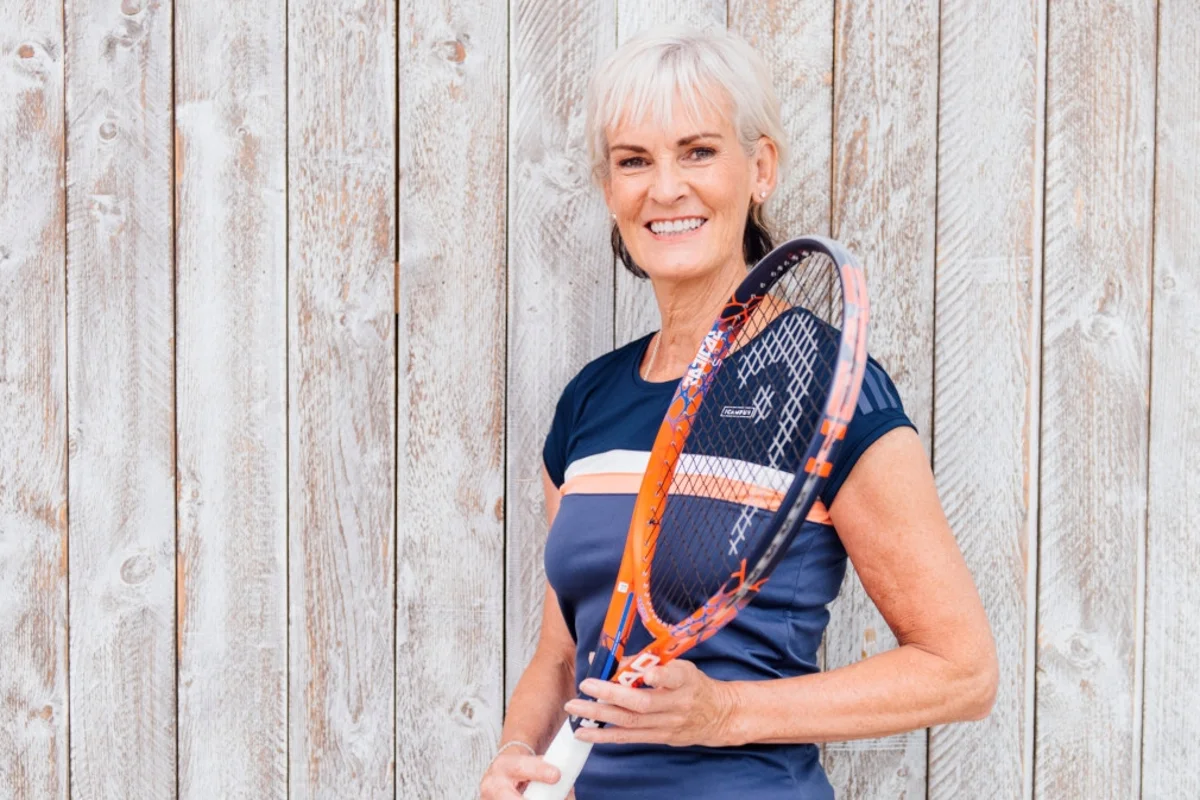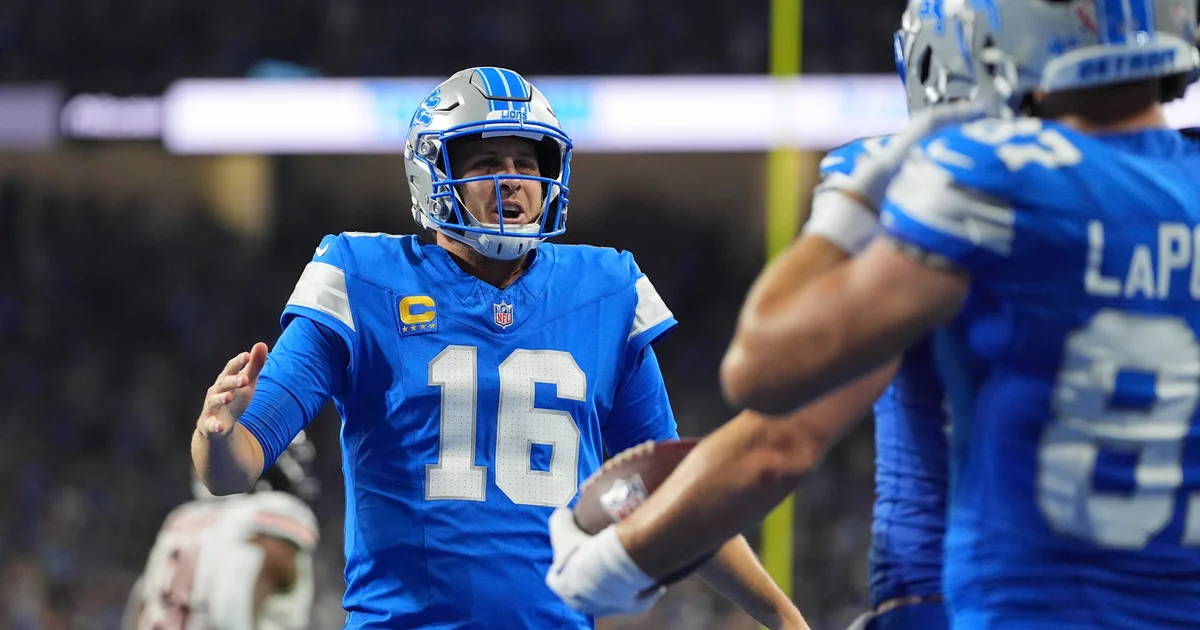By Katie Rosseinsky
Copyright independent

In a roundabout way, Judy Murray has Strictly Come Dancing to thank for her new chapter as a novelist. Back in 2014, Murray, the longtime tennis coach, mum of sporting stars Andy and Jamie and former captain of the British Fed Cup team, was paired with the professional dancer Anton du Beke in the BBC competition. Their routines didn’t always get glittering reviews from the judges, but the duo won over viewers and made it to the eighth week. They stayed in touch post-elimination and then, during lockdown, du Beke sent over a copy of the novel he’d written, a historical romance set in the milieu of ballroom dancing.
Murray sent it back with the spelling and grammar errors highlighted in red pen. Clearly her friend wasn’t offended, because, she recalls, he told her that she should write her own set in the world of tennis: “Think of all the things over the years that you’ve seen and heard!” Du Beke put her in touch with his literary agent, and Murray started to come up with the bones of a story, rooted in her front-row perspective on the upper echelons of tennis. The result was The Wild Card, released in 2023, which grappled with abuses of power in the sport.
It was her first novel, but not her first book: her memoir Knowing the Score, released in 2017, was a Sunday Times bestseller. It charted her upbringing in the Scottish town of Dunblane, her early days as a tennis player (she won 64 junior and senior Scottish titles) and her move into coaching, in the course of which Murray, who is now 66, laid the groundwork for her sons’ remarkable careers as their earliest trainer.
As her sons’ stars rose in the Noughties and beyond – culminating in Andy’s two Wimbledon titles in 2013 and 2016 – Murray was inevitably painted in the press as a sort of overbearing sports mum par excellence, watching from the sidelines with her white-blonde bob and unflinching glare. It’s a stereotype that she’s still poking fun at on X, where she refers to herself as a “pushy mum – allegedly”. Speaking over Zoom from the kitchen of her home in Scotland, though, she’s cheery and straightforward company (“I’ve got a nice free day off to clear my garage out,” she laughs) – albeit with a bracing touch of steeliness.
Her second novel, Game, Set and Murder, is a whodunnit (because “that is what I enjoy reading, generally speaking”) that shares some genetic material with the current wave of cosy crime novels, but also delves into some not-so-cosy topics: controlling relationships and toxic masculinity, for example. The book takes place against the backdrop of a family-run, Home Counties tennis club, the sort of place where high-flyers drop in for a few sets and a sauna after hopping off the commuter train from Waterloo. As four close female friends celebrate a championship victory, their coach Jeremy drops dead after nibbling on a slice of elaborately decorated sponge cake. Each of the women, it soon transpires, has a motive of her own.
When she was imagining the dynamic between this quartet, Murray drew on the friendships that she has leant on while navigating the spotlight. “My oldest friends – two are from tennis and one is from university – have certainly been amazing to me through the whole tennis journey that I went on with the boys, which was, in lots of ways, very stressful,” she says. “Being in the public eye, there’s a lot of pressure to deal with, even if it’s assumed pressure. And my friends have been absolute rocks through that.”
She recalls how, “when Andy and Jamie were at the height of their successes, and Wimbledon was always so busy and so stressful”, with Murray being “doorstepped by paparazzi”, her pals would “do three or four days at a time” with her throughout the tournament, “so that I was never by myself. A lot of the time, I know that I was completely zoned out and not listening to a word they were saying. And it didn’t matter.”
Jeremy, the peacocking, controlling murder victim and villain of Game, Set and Murder, is the sort of coach who delights in belittling his charges. He is, Murray explains, “probably a potted version” of various sporting figures she’s encountered throughout her long career (not that she’s naming names). “There are lots of people that I’ve met through the sporting world that have egos that are larger than they ought to be,” she says, with characteristic candour. “And it’s definitely a thing with men, where they are confident enough to big themselves up and be the showman. I don’t know women coaches who behave like that. I mean, there’s nothing wrong with being confident but certainly something that I have seen a lot is toxic behaviour when people believe their own hype too much.”
As Murray explores Jeremy’s backstory, we start to get an idea of how his upbringing has encouraged his particular brand of toxic masculinity to flourish – and how he might be perpetuating the cycle with his own son. “We’re all products of our environment,” Murray says. Her own sons, she adds, “had strong women around them when they were growing up” and during their early training as kids, “there was never a boys’ section and a girls’ section – everybody was in it together”.
She’s clearly proud of Andy’s status as one of tennis (and sport)’s most vocal feminist allies. As she puts it, the two-time Wimbledon champ “has been consistently outspoken when he has sensed any unfairness or wrong information” – and that means “he’s taken a few interviewers to task over things that they’ve said that haven’t been accurate”. Remember the viral clip of him calling out a journalist’s “casual sexism” over a question that only referred to the men’s game? “He’s probably one of the rare guys in tennis who, if you asked him a question about one of the female players, he’d give you a full rundown of how they played and their track record,” Murray adds. “He genuinely is interested. And he has three daughters now [as well as one son], so he’s only going to get better.”
But we now live in a very different world to the era when Murray was bringing up her sons in the Eighties and Nineties, she concedes: it’s a time when youngsters can access disturbing content and questionable influencers with just a few taps of a smartphone. Like so many of us, Murray watched Adolescence earlier this year. “It was really quite scary, what that threw up,” she says, adding that takeover of screens has a lot to answer for as “it’s so easy to be influenced by the wrong kind of people these days”.
Murray is still a strong believer, though, in sport’s power to provide good role models, and to help foster a “sense of belonging [and] being part of a community” for youngsters. For that reason, she remains vocal about the need for robust PE programmes in school. “There are fewer and fewer opportunities in state schools to have any kind of after-school sport and school teams,” she says. “In the fee-paying schools, obviously, that is very well catered for, but I’d love to see that come back into state schools.”
Her latest project is the Learn to Lead programme, which trains older primary school girls to mentor younger ones in tennis; the aim is to keep girls engaged in sport so they don’t start dropping out in their teenage years. “If you want to retain girls in sport, for me, we need more women around who understand the world according to girls, who understand all the changes that they’re going through through those high school years, and can create an environment in which they can learn and thrive,” Murray says.
While some famous faces who have branched out into the literary world are prickly about any implication that they might have had a bit of guidance from the experts, Murray is characteristically frank. “I’m still a novice at it, and I had a lot of help from the women’s fiction team at [her publisher] Orion,” says Murray, who reckons that her years in the sports world have made her less precious about seeking out support when she needs it.
Her first novel The Wild Card used Wimbledon as a backdrop, as Murray knows the competition “like the back of my hand”. Ironically, though, her editors ended up telling her that there was “just too much tennis” in her first draft – the average fiction reader, they said, “won’t know what an inside-out topspin forehand is”, so could she “just say ‘whack’ or ‘thump’?”
I’m not entirely sure I’d want to be the one tasked with telling Murray she needs to tone down the tennis, but she seems pretty unperturbed. “I read it back, and I realised that I’d written the breakdown of the matches like I was a coach-stroke-commentator,” she says. Her mantra is “if you don’t know something, you find somebody who does”. Pragmatic, unfussy and frank – a very Judy Murray outlook.
Judy Murray will be in conversation with The Independent’s Ellie Harrison at the Henley Literary Festival on 12 October; tickets available here



